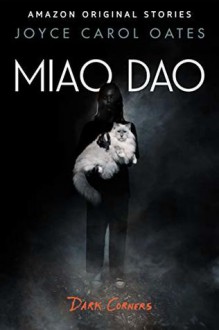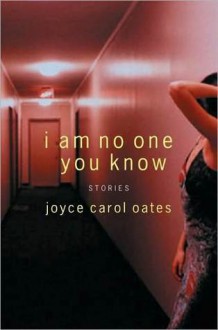
Von 1978 bis 2014 unterrichtete Joyce Carol Oates Kreatives Schreiben an der Eliteuniversität Princeton in New Jersey. Princeton wurde 1746 gegründet und ist die viertälteste Universität der USA. Die reiche Geschichte der privaten Hochschule inspirierte Oates. Besonders faszinierte sie das Rektorat von Woodrow Wilson, der dieses Amt von 1902 bis 1910 ausübte. Der 28. US-Präsident wird im kollektiven US-amerikanischen Gedächtnis als progressiver, reformerischer Held verehrt, der die USA bis 1917 aus dem Ersten Weltkrieg heraushielt. Es wird hingegen gern verschwiegen, dass er ein Rassist war, der die Rassentrennung unterstützte und das Frauenwahlrecht ablehnte. 1984 hatte Oates genügend Material über Princeton während Wilsons Rektorat gesammelt, um einen Roman zu beginnen, der die vernachlässigte moralische Verpflichtung der weißen Elite der afroamerikanischen Bevölkerung gegenüber thematisiert, doch sie fand nicht die richtige Erzählstimme, den richtigen Ansatz für ihre Geschichte. Knapp 30 Jahre ruhte das Manuskript. 2011 hatte sie eine Eingebung und holte es wieder hervor. Es entstand der Schauerroman „The Accursed“, in dem Oates die Gleichgültigkeit der weißen Oberschicht mit einem Fluch bestraft.
1905 ist das ruhige Universitätsstädtchen Princeton ein Hort des Wissens und des Wohlstands. Seine Einwohner_innen sind ausnahmslos hochangesehene Mitglieder der Gesellschaft. Sie stammen aus ehrwürdigen Familien, qualifizieren sich als bescheidene Berühmtheiten und bilden eine akademische Elite, die argwöhnisch über die ihren wacht. Vereinnahmt von den kleinlichen Sorgen und Streitigkeiten ihrer Gemeinschaft ignorieren sie das Unrecht der Welt. Sie erkennen nicht, dass ihre Gleichgültigkeit Konsequenzen hat. Ein Fluch sucht Princeton heim. Das Böse wandelt mitten unter ihnen und wird nicht eher ruhen, bis sie alle bestraft wurden. Sie wähnten sich sicher hinter den erhabenen Mauern vornehmer Anwesen und efeuberankter Universitätsgebäude. Doch keine Seele bleibt unberührt.
„The Accursed“ ist eine Inszenierung. Von der ersten bis zur letzten Seite ist dieser Schauerroman ein wohldurchdachtes Konstrukt, in dem jedes Detail dazu beiträgt, die rassistische Ignoranz der weißen akademischen Elite um die Jahrhundertwende herum zu verurteilen. Joyce Carol Oates akzeptiert keine Ausreden, keine Ausflüchte und keine Relativierungen. Sie straft. Und sie straft hart. Deshalb ist dieses Buch verblüffend grimmig und anders als jeder Roman, den ich bisher aus ihrer Feder gelesen habe. Ich liebe die Vielfältigkeit der preisgekrönten Schriftstellerin. Ich weiß nie, was mich erwartet, wenn ich eines ihrer Bücher aufschlage. „The Accursed“ überraschte mich, weil Oates ihre finstere Geschichte trotz ihrer eigenen Verbindung zu Princeton nicht selbst erzählt. Sie leiht ihre Stimme dem (wahrscheinlich) fiktiven Hobby-Chronisten M.W. van Dyck II, geboren 1906 und ein Nachfahre einer der ältesten Familien in Princeton. Die Perspektive eines indirekt Betroffenen, der sich um Objektivität bemüht, sie jedoch niemals vollständig gewährleisten kann, erlaubt es ihr, eine persönliche Nuance des sogenannten „Crosswick-Fluchs“ herzustellen, ohne die subjektive Verklärung eines Opfers zu riskieren. Gleichzeitig befreit van Dyck sie durch sein Geständnis, kein ausgebildeter Historiker zu sein, von der Notwendigkeit, rationale Interpretationen der Ereignisse anbieten zu müssen, was ihr unheimliches Potential erhöht. Die Spielarten des Fluches sind mannigfaltig und perfide, sodass dessen Muster ausschließlich rückblickend erkennbar ist und sich eine schauerliche, giftige Atmosphäre einschleicht, die einen altmodischen Geschmack auf der Zunge hinterlässt. Gestohlene Bräute, düstere Träume, Geisterheimsuchungen – jede Familie erfährt eine individuelle Form der grotesken Vergeltung, zu der sie selbst beitragen, weil die gesellschaftlichen Konventionen der Epoche und ihres Standes es ihnen verbieten, über Sorgen und Ängste offen zu sprechen. Ihr sozialer Status, der ein Grund für ihre rassistisch gefärbte Gleichgültigkeit ist, wird ihnen zum Verhängnis, was mir äußerst intelligent und angemessen erschien, denn Oates lässt sie unbemerkt selbst zu Vollstrecker_innen werden. Zusätzlich interessant wurde diese Strategie durch die Involvierung echter Figuren der Geschichte, neben Woodrow Wilson zum Beispiel Grover Cleveland, Upton Sinclair, Jack London und Mark Twain. Die Mischung erdichteter und historischer Persönlichkeiten in einem reellen Setting erzeugt in „The Accursed“ eine nervenaufreibende Spannung zwischen Fakten und Fiktion. Immer wieder fragte ich mich, welche Porträts und Beschreibungen authentisch sind und welche lediglich Oates‘ Fantasie entsprangen. Dabei ging sie so subtil vor, dass die Details kaum zu überprüfen sind. Glaubt mir, ich habe es versucht.
„The Accursed“ ist ein gewohnt überzeugender Roman von der Begründerin des Psychologischen Realismus. Trotz paranormaler Elemente beweist Joyce Carol Oates auch in dieser Geschichte ihr unnachahmliches Talent für einfühlsame, wirklichkeitsnahe Charakterisierungen, die die Grenzen zwischen Realität und Fiktion mühelos aushebeln. Die Lektüre war etwas schwerer verdaulich, weil der geschichtliche bzw. pseudo-geschichtliche Input immens ist und vermutlich oft mehr Informationen bietet als unbedingt nötig, aber meiner Meinung nach gehört dieser Detailreichtum zur Inszenierung und trägt zur Etablierung des Erzählers bei, den Oates unmissverständlich als Mann vorstellt, der mit Leidenschaft über sein Lieblingsthema referiert. Der vielleicht größte Unterschied zwischen „The Accursed“ und ihren übrigen Werken ist das geringe Mitgefühl, das sie ihren Figuren gegenüber zeigt. Das ist ungewöhnlich, jedoch keineswegs unmotiviert. Rassismus verdient kein Mitleid. Nicht einmal, wenn er sich durch Untätigkeit äußert.


 Log in with Facebook
Log in with Facebook 











